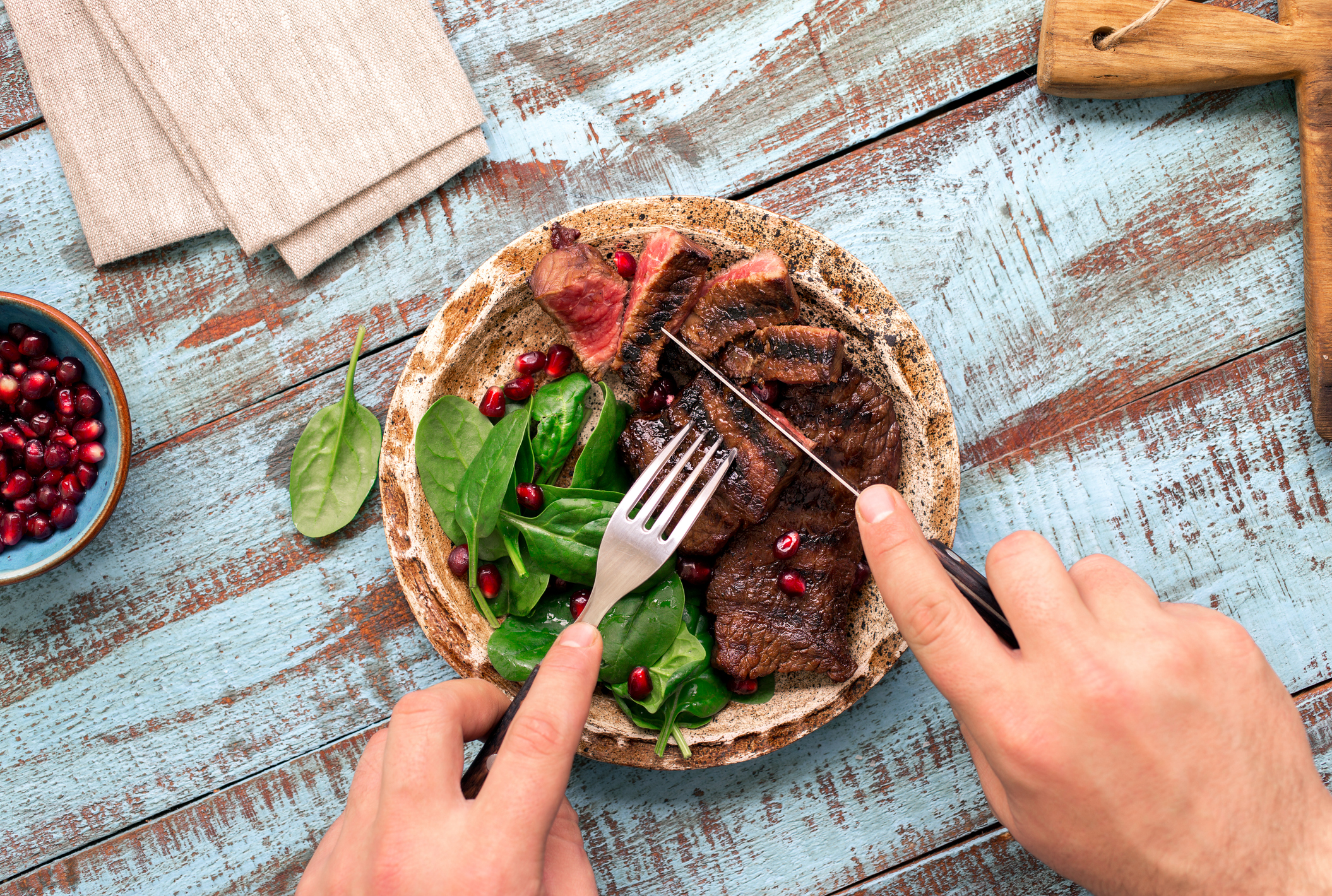Get Easy Health Digest™ in your inbox and don’t miss a thing when you subscribe today. Plus, get the free bonus report, Mother Nature’s Tips, Tricks and Remedies for Cholesterol, Blood Pressure & Blood Sugar as my way of saying welcome to the community!
Why red meat causes carcinogenic compounds in the colon

Even though screenings for colon cancer have improved and become far more common in the past decades, colorectal cancer is still the second most common cause of cancer deaths in the United States.
Yet, the risk of ending up with this type of cancer often comes down to lifestyle factors.
In fact, according to the American Cancer Society, “the links between diet, weight, and exercise and colorectal cancer risk are some of the strongest for any type of cancer.”
So what are their recommendations to keep cancer at bay?
Watch your weight, get more exercise and eliminate certain types of foods from your diet — particularly red and processed meats.
However, while we’ve long known that red meat and colon cancer can go hand-in-hand, there have still been questions as to why this type of meat in particular can lead to cancer. After all, other types of proteins such as fish and chicken haven’t been found to raise your cancer risk.
Now, however, new answers have been found in the DNA of colon cancer cells.
Genetic mutations and a higher risk of death
In a study, published in Cancer Discovery, scientists have now discovered that eating red meat actually leads to genetic mutations in the tissue of the colon.
Specifically, the researchers say that red meat causes a type of DNA damage known as alkylation.
To discover this missing link in the red meat/cancer puzzle, researchers sequenced the DNA from the colorectal tissue of 900 cancer patients. They also reviewed data that had been gathered on each patient’s diet for several years leading up to their cancer diagnosis.
And it all came down to one glaring fact…
Red meat eaters have alkylation-induced mutations in their colon that people who primarily eat chicken, fish, or plant-based diets just don’t.
And while simply having genetic mutations that cause cancer sounds bad enough on its own, there’s more bad news for people who love a juicy steak or hamburger…
Scientists say that the mutations with that alkylating signature have the potential to make colon cancer even more deadly.
In fact, they found that patients with tumors showing high levels of alkylating damage had a 47 percent greater chance of dying from the disease.
Guarding against colorectal cancer means less red meat
With the results of this study, it’s clear that to reduce your colorectal cancer risk, eating less red meat is a good start.
Additional ways to protect yourself recommended by the American Cancer Society include:
- Spending less time sitting. Too much sitting can increase your colorectal risk by as much as 70 percent.
- Reducing alcohol consumption.
- Not smoking.
- Adding more fresh fruits and veggies to your diet. The alkaline diet and macrobiotic diets came out ahead in comparison to other diets that are in step with the American Cancer Society’s dietary guidelines.
- Maintaining adequate levels of vitamin D, calcium and magnesium
To make giving up that red meat easier, try making small substitutions that add up to big changes. For example, swap out your hamburger for a turkey or Portobello mushroom burger. Or instead of a grilled steak for dinner, why not go for a thick, juicy piece of salmon?
Every small change you make could be the one that saves you from cancer.
Editor’s note: Discover how to live a cancer prevention lifestyle — using foods, vitamins, minerals and herbs — as well as little-known therapies allowed in other countries but denied to you by American mainstream medicine. Click here to discover Surviving Cancer! A Comprehensive Guide to Understanding the Causes, Treatments and Big Business Behind Medicine’s Most Frightening Diagnosis!
Sources:
Red meat consumption may promote DNA damage-associated mutations in patients with colorectal cancer — MedicalXpress
Key Statistics for Colorectal Cancer — American Cancer Society
Colorectal cancer risk factors you can change — American Cancer Society
Can Colorectal Cancer Be Prevented? — American Cancer Society
Eating red meat linked to DNA damage, mutations in patients with colorectal cancer — Study Finds












